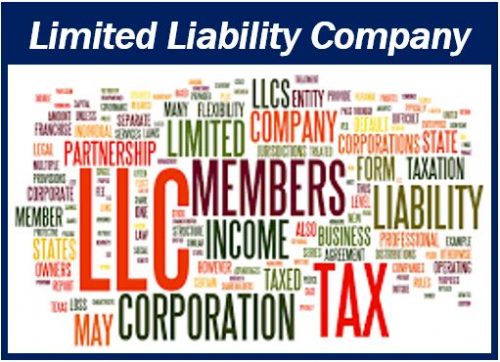
group of entrepreneurs. One of the steps in starting a business is deciding how you will be structuring it. It would be best if you choose whether your new company should become an LLC or a corporation.
The LLC is a business structure that has been around since 1977. Today, it is the most popular business type in all of America. Here is some information about how to start an LLC in Virginia, what makes an LLC lucrative and how you can create one in the Commonwealth of Virginia.
What is an LLC?
LLC refers to Limited Liability Company. It is a type of business that combines the best aspects of closely-held corporations and sole proprietorships. LLCs are also flexible. They can be taxed like a corporation or entity if they do not have any employees.
Does An LLC Give You Greater Protection Than Other Types Of Businesses?
Yes, it certainly does. Limited liability is a primary reason small businesses choose an LLC over a corporation. It is also why many freelancers and independent contractors form LLCs instead of corporations to protect their assets.
An LLC protects its owners by putting up a wall between them and the company. If someone wins a lawsuit against you and gets compensation, they can only collect it from the LLC, not you personally.
The truth is that your creditors can still go after your assets if you do not pay back your business debts. But as long as you keep separate finances for both your personal and business life, the LLC should provide the protection you need.
The Tax Situation
Do you know which type of taxes your new LLC will have to pay? If not, then do not worry. It is a common question that small business owners have. One thing is for sure that an LLC can be taxed in more ways than one.
An LLC can be taxed like a sole proprietor or partnership if no employees. It means that it files an informational tax return called a Schedule C with its owners’ income tax returns. However, if you decide to have employees, you must pay employment taxes for them, just as you would for any other company.
In addition to those two types of taxes, an LLC can also be taxed as a corporation. If your organization is a C Corporation, you will not have any personal tax liability for the LLC’s corporate income.
How Do You Start An LLC In Virginia?
So, how to start an LLC in Virginia?
Firstly, you have to know that you cannot just go online and form an LLC. You have to file articles of organization with your local division of the Virginia Department of State.
However, there are some exceptions for Limited Partnerships. You can file online or in person, depending on the division you go to. When you head down there, make sure you bring cash.
Yes, Virginia is one of the few states that do not let you pay with a credit card when filing your LLC paperwork. The filing fee is currently $125.00.
How To Build An LLC In Virginia With A Single Member?
If you are the sole owner of your new company, then you have to file as a “single-member LLC.” It means that your business is registered as a domestic LLC, but only one member.
It is essential to note that if you are the sole owner of the LLC, you must be a resident of Virginia. As long as you can fulfill this condition, you can file for your LLC right now.
How To Build An LLC In Virginia With Two Or More Members?
If you have multiple owners, things are slightly different. First of all, not every state allows single-member LLCs. If you want to form a single-member LLC, you will have to form an LLC in a different state.
However, if your state allows them, you can file all your information online. There are no “partnership” or “corporation” forms for LLCs because it is called a limited liability company.
When your LLC is formed, you will also have to pay a “minimum annual tax.” This tax is currently $250.00, and it must be paid at the end of each year within three months after the anniversary of your LLC’s formation. If you do not pay it, you could lose the limited liability protection for your business.
Interesting Related Article: “Exploring the Financial Benefits of Forming an LLC“

